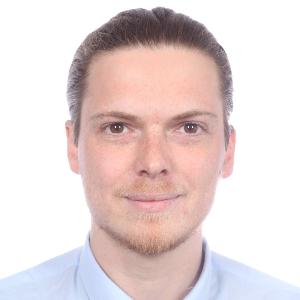Dr. Levin Hornischer
Research Associate
Chair of Logic and Philosophy of Language, MCMP
Postal address:
Geschwister-Scholl-Platz 1
80539 München

Research Associate
Chair of Logic and Philosophy of Language, MCMP
Postal address:
Geschwister-Scholl-Platz 1
80539 München

Levin Hornischer is a research associate at the Munich Center for Mathematical Philosophy (MCMP). His research and teaching mainly concern the mathematical and philosophical foundations of artificial intelligence, but also neighboring fields such as theoretical computer science, systems theory, mathematical and philosophical logic, the philosophy of language, and epistemology. He obtained his doctorate from the Institute for Logic, Language and Computation (ILLC) of the University of Amsterdam with a project on Foundations of Analogical Thinking, for which he was funded by the Dutch Research Council (NWO).
The main part of my research is on the foundations of artificial intelligence (AI). Modern neural networks and machine learning algorithms have become both impressively and worryingly powerful, but we’re still lacking a general theory for them. Developing such a theory is a fascinating open problem at the intersection of computer science, math, philosophy, cognitive science, and other subjects. For classical computer programs, this largely has been solved: we understand their possibilities, limitations, complexity, semantics, logic, verification, safety, etc. My approach to this problem is to investigate if analogous aspects of understanding can be developed for the sub-symbolic computation of modern AI. I find it fruitful to view this kind of computation as dynamical systems; and in my PhD thesis, I developed a domain-theoretic semantics for them.
My research interests outside this topic also include, e.g., the philosophy of language (hyperintensionality, synonymy, vagueness) and philosophical logic (multivalued logics, relevance logic, counterfactuals, non-monotonic logics, logical constants). I enjoy using the tools of dynamical systems theory, domain theory, category theory, duality theory, universal algebra, constructive mathematics, modal logic, and formal epistemology—and especially learning new ones.